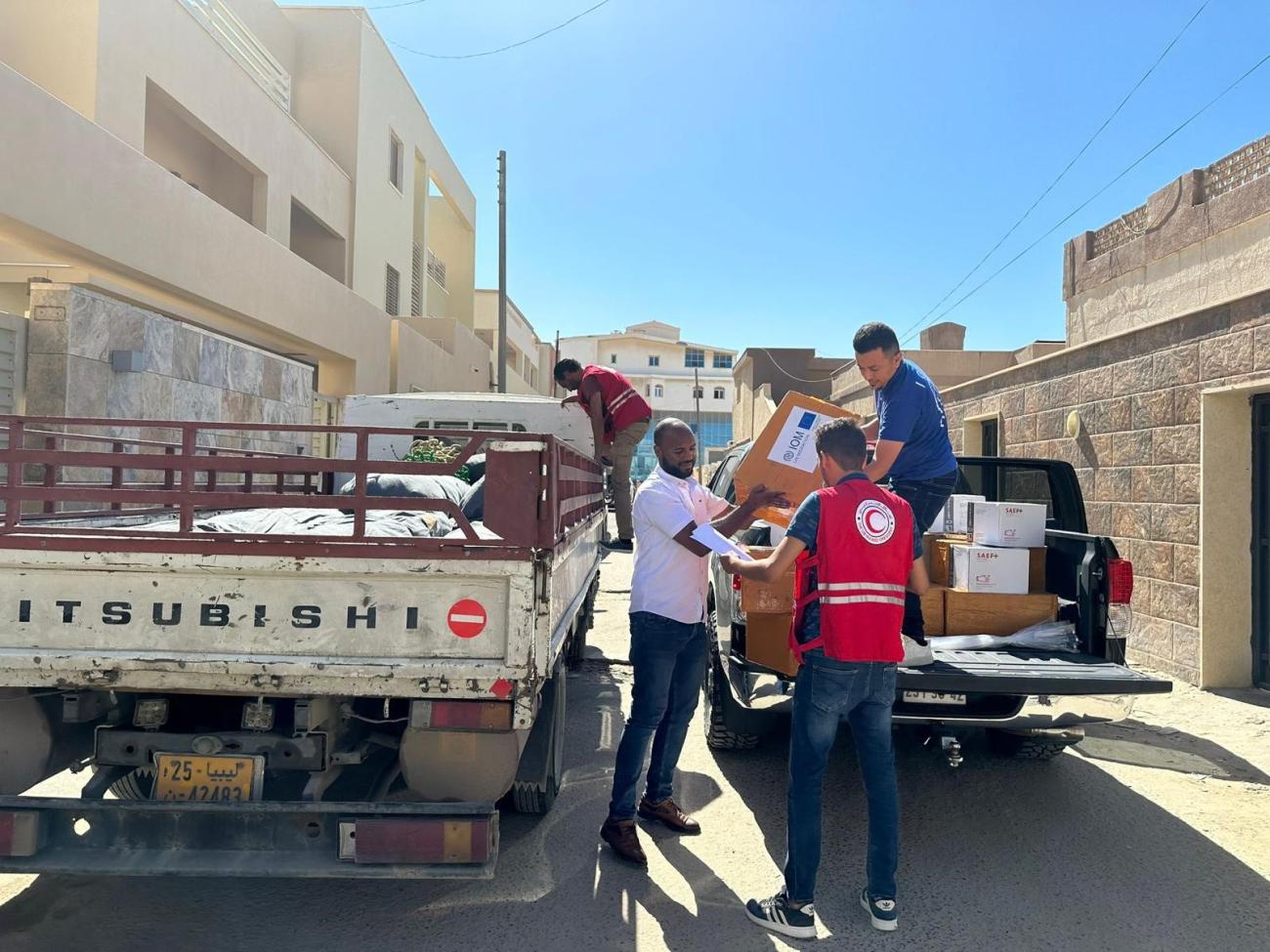Storm Daniel affected northeastern Libya with torrential rains and flash floods affecting multiple cities and towns. The UN is mounting a significant response.
TRIPOLI – 16 September - On 10 September, storm Daniel hit northeastern Libya with 440mm of torrential rains which caused dams to overflow and burst in Wadi Derna and led to flash floods affecting multiple towns and villages and washing away a quarter of the city of Derna. The human toll is significant and is expected to continue rising.
The UN’s is coordinating local and international support and has activated the Rapid Response Mechanism (RRM) which is coordinating humanitarian needs from Benghazi. In parallel, multiple UN agency teams are on the ground conducting needs assessments to collect more accurate data.
“Yesterday, a team of 10 UN agencies conducted field visits to Al Marj, Soussa, Shahat and al Bayda towns,” said Deputy Special Representative for the Secretary General and Resident and Humanitarian Coordinator Georgette Gagnon. “The UN in Libya is continuing to work with Libyan authorities and international partners to ensure that the right aid, gets to the right people, at the right time,” she added.
So far food has been distributed to over 700 households through the World Food Programme (WFP) and 28 tons of medical supplies are enroute via charter flight from the World Health Organizations (WHO), which has also donated ambulances and medical kits. The team continues to work to prevent diseases from taking hold and causing a second devastating crisis in the area.
The scale of the disaster means that it is difficult to access affected areas, to communicate with survivors and to obtain reliable data about the situation. The UN Office for the Coordination of Humanitarian Affairs (OCHA) estimates that approximately 884,000 people live in the five provinces most directly affected by the storm and flooding. UNICEF estimates that 30,000 children have been negatively impacted.
An emergency Flash Appeal has been launched at the government’s request to coordinate humanitarian relief totaling $70 million. In addition, the Under Secretary General for Humanitarian Affairs and Emergency Relief Coordinator allocated $10 million from the UN’s Central Emergency Relief Fund (CERF) to support people affected by the floods, not only in Derna but across the eastern region.The UN in Libya has also deployed surge staff members to expand its presence in Benghazi to better support the response.
“I commend the UN team and partners on the ground for their work in delivering life-saving relief and preventive measures to avert outbreaks of diseases and infection and deliver aid,” said Special Representative of the Secretary General, Abdoulaye Bathily, adding that it was a crisis Libya could not face alone.



